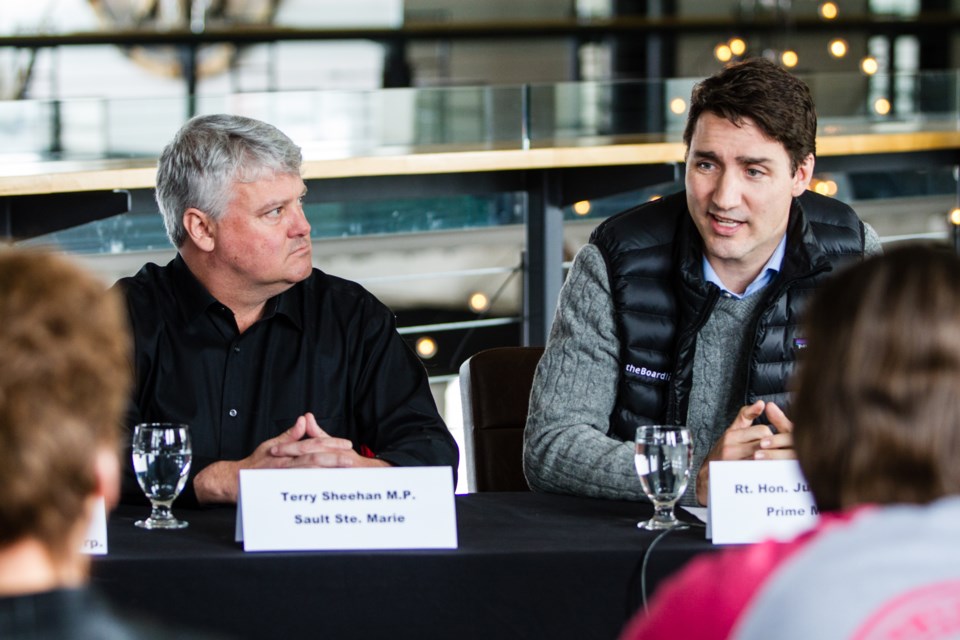SAULT STE. MARIE – Prime Minister Justin Trudeau says that if anything, a potential renege on the U.S. tariff exemption on Canadian steel and aluminum would only make it more difficult to get a deal done on the North American Free Trade Agreement (NAFTA).
The prime minister was in Sault Ste. Marie Wednesday morning in order to reassure the local steel industry and its workers that U.S.-imposed tariffs will not happen.
“The exemption that Canada got wasn’t some big favour they were able to do us,” Trudeau told SooToday at Algoma Steel. “It is based on the U.S.’s domestic interests, it’s not in the U.S.’s interests to bring in these tariffs on Canada. So yes, the president’s saying, ‘You know, we need to move forward on NAFTA, but as long there’s a free trade deal between Canada and the U.S., there won’t be these tariffs'.”
“I accept that. I am still very confident that regardless of what happens, there’s not going to be tariffs brought because they would hurt the U.S. economy, it would hurt U.S. interests as much they’d hurt Canada.”
In the 48 hours or so leading up to Trudeau’s scheduled appearance in Sault Ste. Marie, there was some optimism about his visit.
“It puts us on the map, right?” said United Steelworkers area coordinator Marc Ayotte. “It’s only good things, I would think. Obviously he’s showing that he cares about the workers, he cares for the city of Sault Ste. Marie.”
“Hopefully he’s able to talk reason with Trump and listen to concerns of people in Sault Ste. Marie and the workers of Sault Ste. Marie.”
But the tariff exemption for Canada doesn’t necessarily mean that its steel industry is in the clear, warns Steel Speed Inc. general manager Chris Rollin.
“Obviously there’s a worry that without Canada having these tariffs, now are they [foreign countries] going to be selling a pile more material here in Canada, which could affect Algoma as well?” Rollin said. “If we become the dumping ground for cheap steel now, because they can’t sell it in the states...there’s a pile of things that could happen.”
When asked about preventative measures for the dumping of surplus foreign steel, Trudeau says that he’ll work with the U.S. on any new measures, and that Canada will be a lot more active in the coming weeks on ensuring that government is protecting industry Canadian steel producers and its steel workers from ‘having to unfairly compete with folks who aren’t following our rules’ surrounding labour and environment.
“In the past two budgets, our government put forward, you know, stronger measures, whether it’s supporting CBSA (Canadian Border Service Agency) and the ability to actually do their work on shipments coming in, but also [a] broad range of remedies and tools there to prevent the impact of steel that is, you know, dumped in or brought in under production costs.”
The prime minister departs today for Regina, Sask., where he’ll be meeting with the city’s mayor and steel industry leaders this afternoon.



